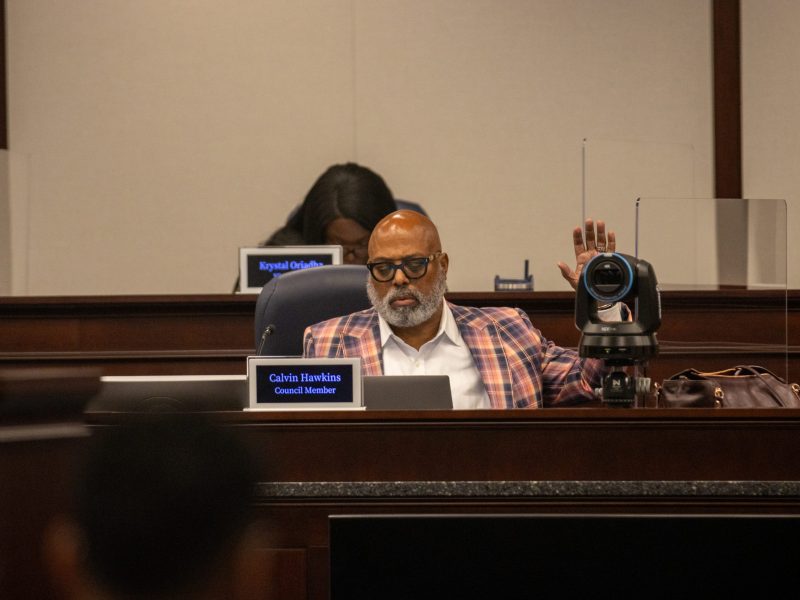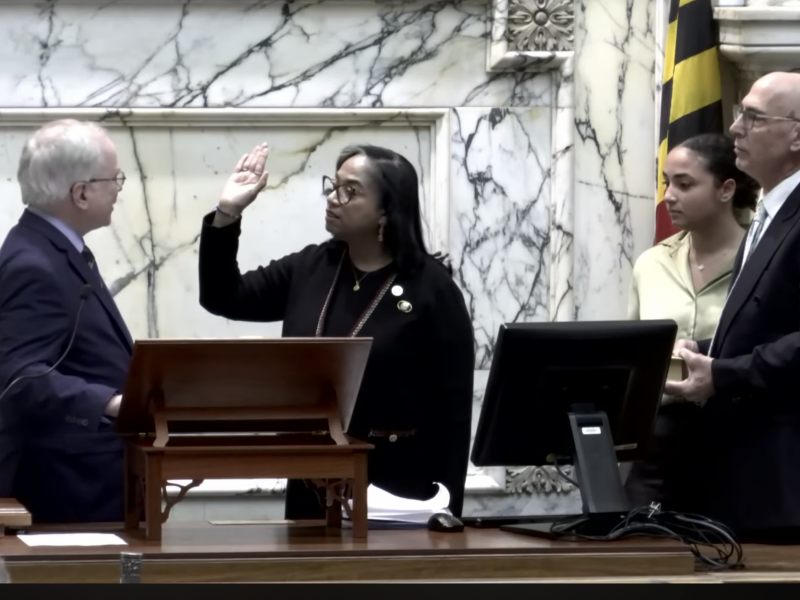The National Archives and Records Administration is digitizing its more than 13 billion paper records up to 10 times faster with a new digitization center in College Park, which formally launched Friday.
The Friday launch is the second phase of a multi-phase project that provides public online access to federal records. The first phase, which involved renovating the space, was completed in October 2023. Currently, the online National Archives catalog contains more than 270 million digital records, and aims to reach 500 million by September 2026, according to a Friday National Archives news release.
“This is going to be a game changer for the National Archives,” Colleen Shogan, the National Archives’ archivist of the United States, said during the ribbon-cutting ceremony Friday.
Shogan spoke at the ribbon-cutting ceremony, accompanied by Maryland Sen. Chris Van Hollen and Reps. Steny Hoyer Glenn Ivey. The lawmakers worked to secure $120 million in appropriations for the new center, which is located at the National Archives College Park headquarters in Ivey’s district.
[College Park City Council discusses options for rent subsidy pilot program]
Hoyer, who graduated from the University of Maryland in 1963, helped secure $250 million in funding for the College Park headquarters’ construction in 1994, he said.
“This is the best archival institution in the world,” Hoyer said as he addressed the center’s newly assembled staff. “You will expand the ability of literally millions of researchers around the world.”
Ivey shared the personal significance the project had when he recently began to research his family history.
“I think it’s critical that people like you and an institution like this is making sure that we track that history because this is a history that’s going to make a difference,” Ivey said.
[College Park City Council approves Rhode Island Avenue design improvement]
Selected documents from the National Archives holdings were on display at the ribbon-cutting Friday, including the Statue of Liberty’s official deed of gift and the patent for Michael Jackson’s anti-gravity shoes.
This phase of the project involved spending more than $3 million on equipment, including some tools the staff demonstrated on Friday, according to a National Archives news release. The staff showcased new high-speed scanners, which can digitize up to 314 pages per minute.
After the second phase, which is set to be completed by September 2024, future phases will include building cold-storage space for fragile records and improved office space, according to the news release.



